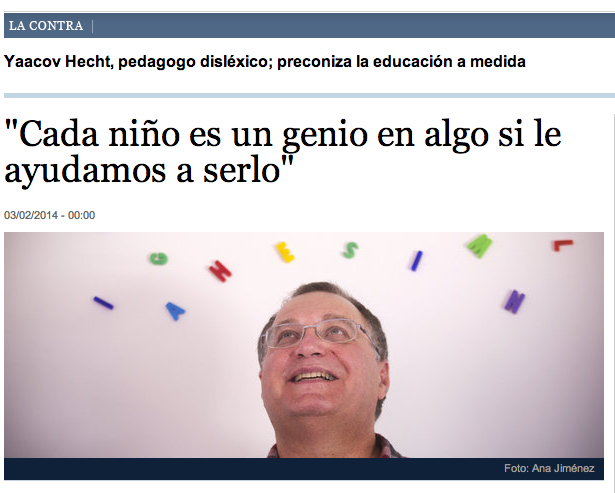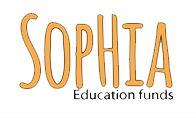On February the 3rd, in the great section of La Contra La Vanguardia, it caught our attention the visible headline: «Every child is a genius at something if we help him to be so.» The sentence is from Yaacov Hecht, educator, Governments advisor in education and … dyslexic.

Hecht talks about his own failure at school, given the difficulty of achieving the required objectives because of their handicaps to read and write. However, despite its limitations in this regard he knows how we should educate children. He understands how is the result of enhancing their skills and hobbies to get them geniuses lacking to focus attention solely on what they fail to do as well as the others or on what they do not like to study. He knows that the objective must be to form them for self-employment, innovation and networking with other peers.
The interview contains statements as juicy as that ‘PISA reports are uniformizing tests that fosters a school that educates for the past’, which utility is reduced if we want to train children for the future; and others that put the willies: ‘PISA does not prepare for self-employment, but for the unemployment’.
Preparing children for the future is to train them not to enter the obsolete corporate hollow cells, where knowledge flows through these cells up and down as they compete to move up without providing value to companies. That does not create wealth. Nowadays what is asked to be hired in a leading company, Hecht says, is: what you can do and how you learned it?, what you are great in and what you do better than anyone? Giving our students tools to answer these questions is to prepare them for the future.
